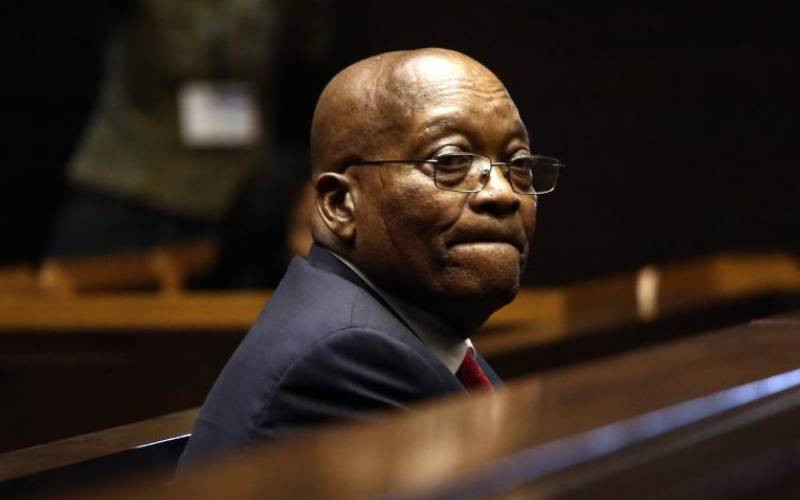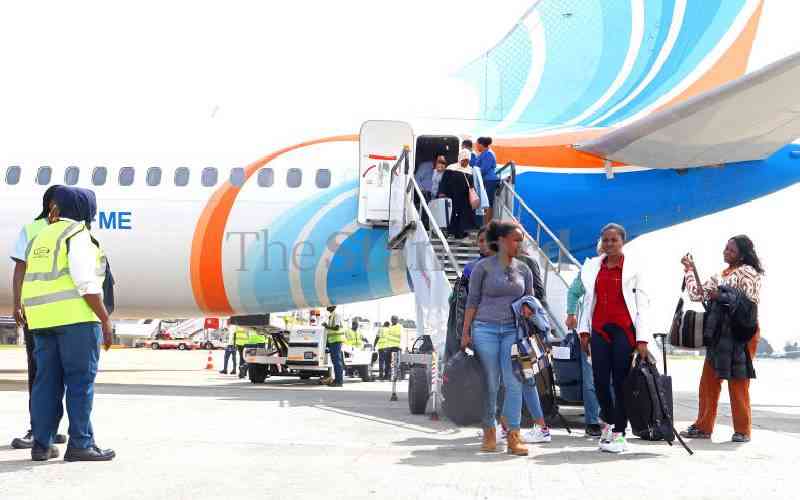South Africa: Nobel Peace Laureates Jody Williams and Shirin Ebadi on Wednesday slammed South Africa's refusal to give fellow laureate and Tibetan spiritual leader, the Dalai Lama, a visa to attend a peace conference and said they would boycott the event.
The Dalai Lama, who lives in exile in India and is at loggerheads with China over Tibet, had been hoping to join a Nobel peace conference in Cape Town on Oct. 13.
This is the third time South Africa has refused the Dalai Lama a visa in the last five years, according to his representative, and has intensified speculation about China's influence over the country.
Williams, an American anti-landmine campaigner, and Iranian lawyer and human rights activist Ebadi said they were unhappy with South Africa's decision, particularly given its history of fighting against apartheid.
"There is a history of fighting against racial discrimination in South Africa and that’s why we don’t accept this country refusing to give a visa to His Holiness the Dalai Lama three times," Ebadi told a news conference organised by the Tibetan government in exile in the Indian city of Dharamsala.
Williams said she, Ebadi and several other Nobel laureates had decided to boycott the Cape Town meeting, forcing organisers to postpone the event so that it could be moved to another country to enable the Tibetan Buddhist leader to attend.
"We believe that we could not, in good conscience, go to South Africa when our whole mission is to stand with people when their human rights are being violated," said Williams.
"Obviously His Holiness’s human rights are being violated and in denying him a visit, they are also denying the human rights of the people of Tibet and so there was no way we could go."
Ebadi said the visa denial was clearly due to pressure put on South Africa by China, a major trading partner and investor.
China, which regards the Dalai Lama as a "splittist", or separatist, has ruled Tibet with an iron fist since Communist troops marched in in 1950, and regularly puts diplomatic pressure on countries to crack down on the activities of Tibetan exiles.
The Tibetan spiritual leader says he seeks only greater autonomy for his homeland, which he fled after a failed uprising in 1959.
Officials at the South African embassy in New Delhi were not immediately available for comment. Last month the South African Foreign Ministry confirmed it had received a visa application from the Dalai Lama and said it was being subjected to "normal due process".
A South African court ruled two years ago that officials had "unreasonably delayed" a decision on granting the Dalai Lama a visa in 2011, largely out of fear of angering China.
The delay meant the Dalai Lama was unable to attend the 80th birthday of his friend and fellow Nobel peace laureate Archbishop Desmond Tutu in Cape Town in October 2011. The previous visa denial, in 2009, was also for a peace conference.
Ebadi said she was surprised that the usually outspoken Tutu had kept silent on the issue.
Stay informed. Subscribe to our newsletter
"I know Desmond Tutu is not a part of the government, but what I am surprised (at) is that he is not speaking openly like the rest of us. Let us remember that whoever decides to stay silent in front of a dictator, that person is contributing to the crime of dictatorship," she said.
 The Standard Group Plc is a
multi-media organization with investments in media platforms spanning newspaper
print operations, television, radio broadcasting, digital and online services. The
Standard Group is recognized as a leading multi-media house in Kenya with a key
influence in matters of national and international interest.
The Standard Group Plc is a
multi-media organization with investments in media platforms spanning newspaper
print operations, television, radio broadcasting, digital and online services. The
Standard Group is recognized as a leading multi-media house in Kenya with a key
influence in matters of national and international interest.
 The Standard Group Plc is a
multi-media organization with investments in media platforms spanning newspaper
print operations, television, radio broadcasting, digital and online services. The
Standard Group is recognized as a leading multi-media house in Kenya with a key
influence in matters of national and international interest.
The Standard Group Plc is a
multi-media organization with investments in media platforms spanning newspaper
print operations, television, radio broadcasting, digital and online services. The
Standard Group is recognized as a leading multi-media house in Kenya with a key
influence in matters of national and international interest.







